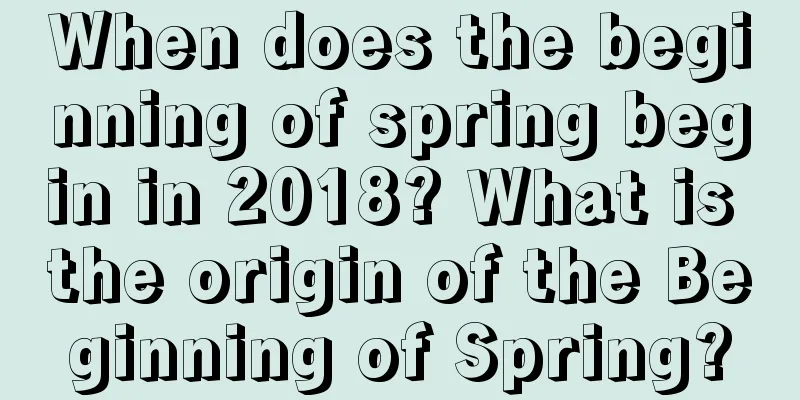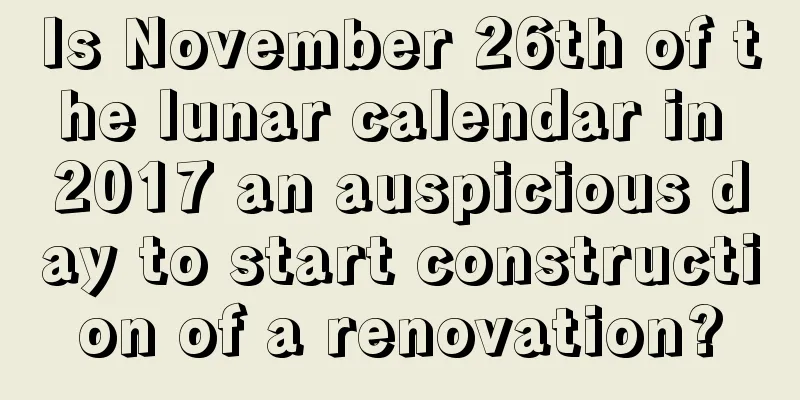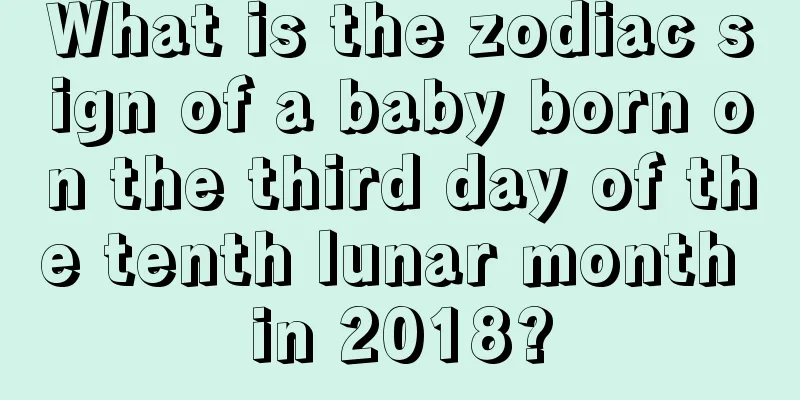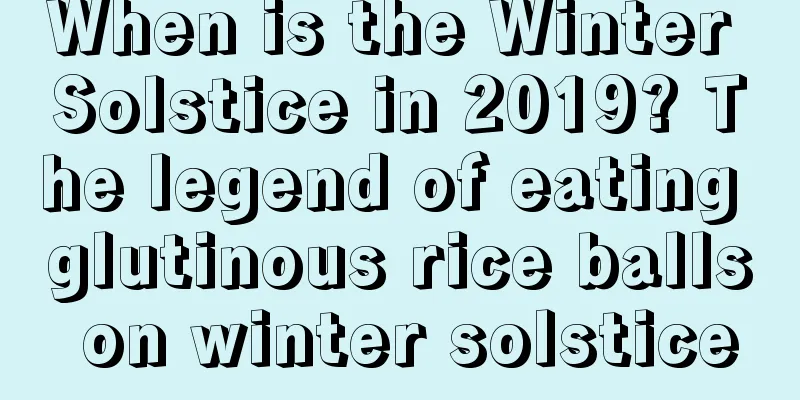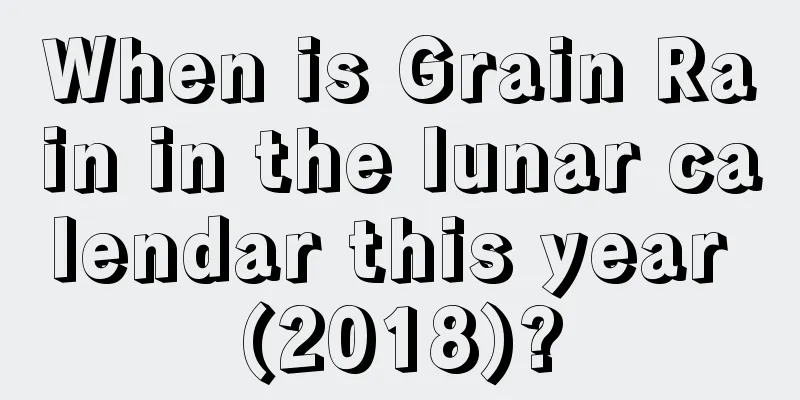Is the time of the Summer Solstice in 2019 auspicious or inauspicious? What are the customs of the Summer Solstice?
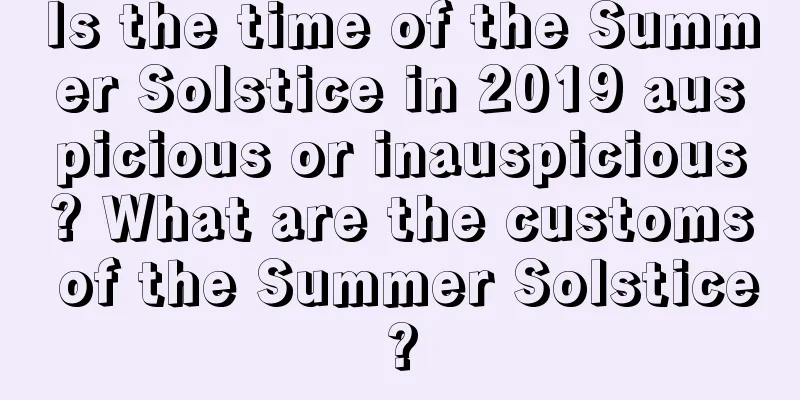
The Summer Solstice, also known as the "Summer Festival" or "Summer Solstice Festival" in ancient times, is a solar term that was highly valued in ancient China. So, what is the auspiciousness or inauspiciousness of the time of the Summer Solstice in 2019, and what are the customs of the Summer Solstice? May is also known as the Pu month. The most prosperous herb in May is calamus. As calamus is one of the "Four Graces of Flowers and Herbs", it is called the Pu month. If you want to know more about auspicious and inauspicious days in the fifth month of the lunar calendar, please follow Mr. Shuimo's website!The auspicious and unlucky time of the summer solstice in 2019Zi Hour ( 23:00-00:59 ) is unluckySuitable for: seeking offspring, getting married, settling down, burying, unsuitable for: offering sacrifices, praying for blessings, taking up a post, travelling, seeking wealth, building, moving, litigation Chou Hour (01:00-02:59) is unlucky Good: Seeking wealth, getting married, adopting, migrating, or burying. Bad: Traveling to take up a post. Yin time (03:00-04:59) auspicious Suitable: praying for blessings, seeking offspring, getting married, traveling, seeking wealth, opening the market, setting up the bed, and taking up a new post. Unsuitable: raising the beam and building the house. Mao time (05:00-06:59) auspicious Suitable for: building, moving into a house, burying, praying for blessings, fasting and offering sacrifices, traveling, accepting marriage proposals, getting married, offering sacrifices. Taboo: auspicious time, no taboos Chen hour (07:00-08:59) is unlucky should: Taboo: praying for blessings and offspring Si time (09:00-10:59) auspicious Suitable for: praying for blessings, seeking offspring, getting married, traveling, seeking wealth, opening business, setting up beds, building houses, moving. Unsuitable for: consecrating, building, burying Noon (11:00-12:59) Unlucky Ten Days Suitable for: praying for blessings and offspring, traveling, seeking wealth, getting married, burying, and taking up a post. Unsuitable for: building or starting construction. Weishi (13:00-14:59) is unlucky and empty Good: The sun is broken and everything is unfavorable. Bad: The sun is broken and everything is unfavorable. Shen time (15:00-16:59) auspicious Suitable: building a stove, paying tribute to the gods, building, meeting a noble, seeking wealth, getting married, adopting, moving, burying. Unsuitable: offering sacrifices, praying for blessings, fasting and offering sacrifices, consecrating, taking up a post, traveling. You Hour (17:00-18:59) is unlucky Suitable for: seeking offspring, getting married, traveling, seeking wealth, opening business, trading, and setting up the bed. Unsuitable for: offering sacrifices, praying for blessings, fasting and offering sacrifices to the gods. Xu time (19:00-20:59) auspicious Suitable for: praying for blessings, getting married, setting up the bed, moving to a new house, building, burial, and offering sacrifices. Unsuitable for: taking up a post or travelling. Hai hour (21:00-22:59) is unlucky. Good: build a house, move, build a stove, set up a bed, move into a new house, start business, pray for blessings, get married, meet noble people, and seek wealth. Bad: go on a trip to take up a post What are the customs of the Summer Solstice?1. Worshipping the gods and ancestorsThe summer solstice is the time of wheat harvest. Since ancient times, there has been a custom of celebrating the harvest and worshiping ancestors at this time to pray for the elimination of disasters and a good harvest.In ancient times, the Summer Solstice Festival was as grand as the Dragon Boat Festival. Since the Zhou Dynasty, the imperial court has held grand sacrificial ceremonies on every summer solstice to pray for the elimination of disasters and a good harvest. In addition to sacrifices, the court also used singing, dancing, rituals and music to pray for peace and prosperity for the country and the people. In the Song Dynasty, starting from the summer solstice, all officials in the court would have three days off. During the Liao Dynasty, women gave each other powder sacs to remove the smell of sweat on their bodies. Among the folks, every summer solstice, farmers from all over the country are busy offering sacrifices to gods, called "offering sacrifices to heaven", in order to pray for good weather and good harvests. There are also differences in the north and the south. People in the north mostly pray for rain to prevent drought, while people in the south mostly pray for clear weather to prevent floods. Nowadays, some places still hold a grand "Summer Wheat Festival" around the summer solstice, which is a relic of the ancient "Summer Festival" activity. 2. Eat wheat dumplings and summer solstice cakesThe Annals of Wujiang County states: "On the summer solstice, wheat dumplings are made and offered to the ancestors after the sacrifice is completed."People in the Jiangnan region not only eat "wheat dumplings", but also give them as gifts to each other. Farmers also roll dough into thin pancakes, bake them, and fill them with vegetables, beans, tofu, and bacon. They eat them after offering sacrifices to the ancestors or give them to relatives and friends. They are commonly called "Summer Solstice Pancakes." 3. Winter Solstice Wontons and Summer Solstice NoodlesSince ancient times, Chinese people have had the saying "eat wontons at the Winter Solstice and noodles at the Summer Solstice", as well as the saying "after eating noodles at the Summer Solstice, the day will be one line shorter". There are many varieties of noodles in the south, such as Yangchun noodles, dry soup noodles, shredded pork noodles, three fresh noodles, Guoqiao noodles, sesame oil cold noodles, etc., while in the north there are noodles with gravy and noodles with soybean paste. "Because the new wheat has already arrived at the summer solstice, eating noodles at the summer solstice also means trying something new."4. Eat oatmeal porridge and wontons togetherOn the day of the summer solstice, people in Wuxi eat oatmeal porridge in the morning and wontons at noon, which symbolizes chaos and harmony. There is a saying that goes, "Eat wontons at the Summer Solstice and dumplings at the Winter Solstice, and your family will be reunited and healthy all year round." Oatmeal porridge is not only fragrant, nourishing the spleen and stomach, and suitable for all ages, but it can also effectively relieve people's loss of appetite during the "bitter summer" and can also remove dampness and promote diuresis. It is a rare delicacy during the Summer Solstice. |
<<: What day is the fourth day of the fifth lunar month in 2019? What month and date is it?
>>: Is the second day of the sixth lunar month in 2019 a good day? Can I start renovation?
Recommend
Can I move house on the sixth day of the sixth lunar month in 2017? Can I move into a new home?
1. What day is the sixth day of the sixth lunar m...
Is September 22, the lunar year of the Tiger 2022, an auspicious day for travel?
Choosing an auspicious day to do the corresponding...
Is it good for a girl born on the ninth day of the eighth lunar month in 2022? Destiny Analysis
If you want to know the development of your baby&#...
Is October 26th of the lunar calendar 2021 suitable for caesarean section? What should I pay attention to after cesarean section?
The tenth month of the lunar calendar marks the tr...
Where is the God of Happiness on the 18th day of the 10th lunar month in 2017?
A gust of cold wind blows by, and we enter the ea...
Can I hold a wedding on the 26th day of the seventh lunar month in 2019?
Chinese people pay attention to "the right t...
What is the fate of girls born on National Day 2018 and what is their guardian star?
Generally, during holidays like National Day and M...
What does it mean that heavy snow means a good harvest, but no snow means disaster? When is the Big Snow solar term in 2019?
What does it mean that heavy snow means a good har...
Is Laba Festival 2019 suitable for burial? Is Laba Festival 2019, the eighth day of the twelfth lunar month, suitable for burial?
Introduction: In our country’s traditional culture...
Is it a good idea to move house during the Summer Solstice in 2018? Can I move to a new home during the Summer Solstice?
Introduction: In our country’s traditional culture...
Is the leap April in the lunar calendar of 2020 a long month or a short month? Check the time of long and short months!
In the 21st century, leap April is considered a re...
February 6th, 2022 is Women's Day. Is Women's Day suitable for caesarean section?
The sixth day of the second lunar month in 2022 is...
Will it bring good luck to move during the Great Cold? Is it auspicious to move during the Great Cold?
The Great Cold is the last solar term of the year,...
Can a funeral be held on October 17th of the lunar calendar in 2021? Is the funeral a good idea?
The pros and cons of funerals at different times a...
What zodiac sign’s birthday is February 30th in the lunar calendar in 2021?
Everyone has his or her own zodiac sign. Do you kn...
